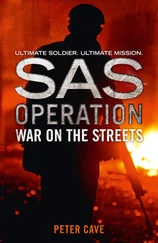Don’t rub it in, thought Radford. He knew only too well that since the end of the Cold War, the U.S. Navy’s ASW capabilities had atrophied and that both surface and submarine forces had been sharply reduced. Radford also knew that the Navy’s Sound Surveillance System, SOSUS, had for all purposes been mothballed. Gordon and Webster would have to strip assets from other theaters to mount an effective search in conjunction with the Russians, if they’d allow it.
“Admiral Stashinsky, why won’t you allow the U.S. Navy to lend a hand?” Gordon asked.
“Ego,” Friedman whispered behind a hand to Radford, who nodded agreement. “Pure and simple.”
“Don’t presume to lecture us on our abilities,” Grishkov snapped. “Furthermore, we are hunting for one of our own submarines and reserve the right to find and kill it. Not the U.S. Navy.”
Carter Ellsworth said, “The Barents Sea isn’t a private Russian lake, gentlemen, it’s international waters and we’re entitled to access. The U.S. has a big stake in finding the K-363 and this band of terrorists. Your Northern Fleet doesn’t have the muscle to do the job by itself, and by the time you admit it, it may be too late to head off disaster.”
“Gentlemen, we’re getting off track,” Friedman said. “I need hard recommendations I can take to the President. We can’t waste time disputing methods or end up in a turf war.” “Admiral Grishkov,” said Radford, “what can you tell us about Kapitan Third Rank Georgi Litvanov that might give us a clue to how we can defeat him?”
Grishkov allowed a faint smile to reveal the pride he felt in Litvanov’s skills. Terrorist or not, he was still a member of an exclusive fraternity of submariners, to which few men would ever belong.
“Litvanov is a brilliant officer and an independent thinker, which I admit is rare in the Russian submarine service. That’s why he will be so hard to find and…eliminate.” He deliberately avoided the word kill. “I don’t know of any flaw he has that we could exploit. He’s too unpredictable. And he’s dedicated. He will do whatever it takes to carry out their plan. That you can be sure of.”
“We know that Litvanov is a tough disciplinarian,” Radford said. “Is there any way that such a trait could possibly work to our advantage?”
“I see no way it could,” Grishkov said. “If you are thinking he may prove too rigid and perhaps make a mistake, don’t count on it. He and his crew are too disciplined to make mistakes.”
Radford had made extensive notes about Litvanov. There had to be a way….
Secretary Gordon said, “Admiral, what can you tell us about the weapons aboard the K-363? We understand that Captain Scott received assurances from Kapitan First Rank Titov in Olenya Bay that the sub is not armed with cruise missiles, only torpedoes. Is that true?”
On the split screen Grishkov shifted uneasily in his chair and glanced at Stashinsky. “Titov, eh? Well, yes, that seems to be the case. All SS-N-21s were off-loaded when the K-363 put in from her last patrol. I made detailed inquiries of the ordnance officers at Olenya Bay and they confirm that all the missiles are accounted for. Standard procedure requires that our boats off-load missiles but not torpedoes before docking.”
“Why not torpedoes?” Radford said.
“Because it is very difficult to unload torpedoes from an Akula-class boat. As you must know from experience with your Los Angeles-class boats, it requires reconfiguration of the submarine’s forward compartments and decks; being short of manpower, we try to avoid it. Sometimes we remove the detonators from the torpedoes, but not always.”
Stashinsky said, “I have personally approved the decision to permit our boats to retain their torpedoes while in port.”
“You’re certain that the K-363 only had torpedoes aboard when she put to sea?” Gordon said.
“Yes,” said Grishkov.
“Do you know how many are aboard?” Webster said.
“We think perhaps twelve, half her normal load out.”
“And none are equipped with nuclear warheads?” Gordon said.
“Of course not. Under START III we dismantled all of our nuclear torpedo warheads and put their fissile materials under international control. The torpedoes aboard the K-363 have conventional warheads.”
“What I meant was,” Gordon said, “is there any way a nuke warhead could have been lost in the shuffle and stuck on the end of a torpedo? One that’s aboard the K-363?”
“Are you suggesting, Mr. Secretary, that we are liars—that we have violated the START III Treaty?” “Of course not. But given the situation we’re facing, we shouldn’t assume anything.” “Mr. Secretary,” said Grishkov, “assume what you wish. We are confident all the cruise missiles aboard the K-363 have been accounted for, and that all of our nuclear torpedo warheads have been dismantled.”
Jack Webster said, “Admiral Grishkov, with all due respect, I believe that’s what you believe, but if your ordnance people are wrong and someone miscounted one of those babies, we’re in trouble.”
“So the only way to prevent a disaster,” Friedman said, “is to find Zakayev and sink him, and what I’m hearing is that the only way to do that is to flood the Barents Sea area with ASW aircraft and surface ships, right?”
“And submarines,” Ellsworth added.
“Why submarines?” Friedman asked.
“In a word, stealth.”
“Do you mean a submarine could find the K-363, sneak up on her, and kill her?”
“One of ours could.”
Friedman brightened. “Could a Russian sub do it?”
Ellsworth glanced at Webster. “Well, I don’t know about that….”
“Admiral Stashinsky?” said Friedman.
“Of course.”
Friedman was taken aback. “Then why in God’s name aren’t you deploying submarines to find the K-363?”
Grishkov looked at Stashinsky, whose gray face had turned to stone.
Friedman understood only too well. “There is no time for dissembling, gentlemen. We are facing a crisis. If you have something to tell us, then goddamnit, tell us!”
Stashinsky tugged his red nose. “Da.”
Grishkov nodded to Stashinsky on video, then said sadly, almost apologetically, “We have only ten SSNs—one Severodvinsk, six Akulas, and three Sierras—active in the Northern Fleet, and the K-363 is one of them.”
Radford and Friedman exchanged surprised looks. Only ten SSNs! How did that match what SRO intelligence had been reporting? Radford wondered, and made a note to find out.
Grishkov was saying, “Three SSNs are on Atlantic patrols. In Olenya Bay, three others are undergoing refits and two are in drydock. That leaves one SSN, the K-480, an Akula identical to the K-363, ready for sea. But the K-480’s commander, Sergei Botkin, is a young, inexperienced starshi leitenant, a senior lieutenant. And there is no way Botkin could find Litvanov before Litvanov would have him in his sights. It would take an experienced submarine commander to hunt Litvanov down, and, I am sorry to say, we don’t have one available in Olenya Bay.”
“Yes, you do,” Radford said.
Friedman seemed to be reading Radford’s mind; he pointed a finger of approval at the SRO director, the equivalent of a Situation Room high-five. Ellsworth had picked up on it too.
“Captain Jake Scott is in Olenya Bay waiting for orders,” Radford said. “He’s an experienced submariner—as good as they come, I’m told. He also speaks Russian.” He saw Ellsworth give a thumbs-up. “I say, put him aboard the K-480 and turn him loose on Litvanov.”
Stashinsky looked as if he had suffered a coronary. “Nyet, nyet!”
“Yes!” Ellsworth slammed the table in the Norfolk briefing room with the palm of his hand. “Do it and he’ll find that sub and sink it too.”
Читать дальше












